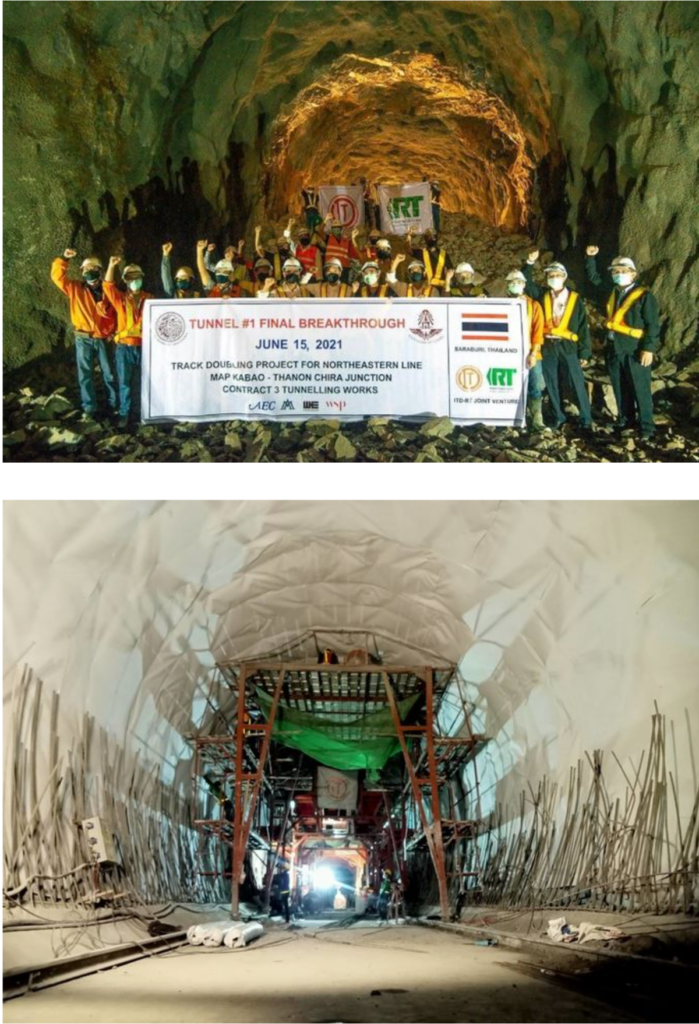Over the past decade, China has made remarkable strides in the development of high-quality PVC geomembranes, transitioning from thin vinyl plasticized PVC sheeting to engineered PVC geomembranes. This evolution in materials has been driven by the need for more robust and durable solutions in various construction and infrastructure projects. Two companies at the forefront of this development are Joaboa Technology Co., Ltd. based in Shenzhen and Hongxiang New-Geo Material Co., LTD in Shandong.

Joaboa Technology Co.’s innovative PVC geomembrane
Joaboa Technology Co. has emerged as a key player in the field, pioneering the development of self-adhesive PVC waterproofing geomembranes. These PVC geomembranes are engineered for outstanding UV resistance, making them an ideal choice for waterproofing geomembrane systems in hydraulic structures and exposed dam face projects.
The use of durable PVC geomembranes is increasingly specified in hydraulic structures such as roller-compacted concrete (RCC) dams, rockfill dams and concrete faced rockfill dams to waterproof the whole upstream face and to prevent water infiltration at joints. This is now recognized as a proven efficient method to prevent uncontrolled water seepage from the dam structure and to prevent concrete deterioration.
What sets Joaboa’s PVC geomembranes apart is their commitment to quality. They utilize high-quality stabilizers and pigments to enhance the material’s durability and performance. For instance, Joaboa sources its PVC stabilizers from BASF in Germany and their white titanium dioxide pigment from DuPont in the U.S. They also employ both monomeric and polymeric plasticizers, including the eco-friendly, non-phthalate UniHydro® UN899 plasticizer from UPC Group. Their PVC resin, the core material, is supplied by Hwasu Corp in China.
Impressive performance metrics
Joaboa’s PVC geomembranes have demonstrated remarkable UV durability. After subjecting the material to 4,000 hours of accelerated UV exposure, these geomembranes maintain an impressive 85% tensile strength and 80% tensile elongation. Such performance metrics make them a reliable choice for critical applications.
Notable projects and applications
Joaboa Technology Co. has marked its presence with significant projects. In 2022, the company supplied the PVC waterproof barrier for the longest railway tunnel in Thailand, a testament to the quality and reliability of their PVC geomembranes.
The company offers three types of PVC geomembranes: homogeneous type (PVC-H), fleece backing type (PVC-L), and fabric-reinforced type (PVC-P).

These versatile materials find application in a wide range of construction scenarios, including steel structure, exposed and non-exposed roofing, hydro dam exposed faces, tailing dam faces, and tunnel waterproofing works.
Emerging applications: Concrete dam upstream faces
An emerging area where Joaboa’s PVC geomembranes are gaining traction is the protection and leakproofing of concrete upstream dam faces. With the increasing construction of dam structures for hydroelectric, pumped-hydro, and tailings containment, waterproofing and safeguarding concrete from deterioration have become paramount concerns.
As China continues to invest in infrastructure and environmental projects, the demand for high-quality PVC geomembranes is expected to rise. Companies like Joaboa Technology Co. are at the forefront of this industry, offering innovative solutions that contribute to the longevity and reliability of critical infrastructure projects. With their commitment to quality and durability, these PVC geomembranes are set to play a pivotal role in China’s construction and environmental protection efforts. Information courtesy of ExcelPlas.
 TEXTILES.ORG
TEXTILES.ORG


